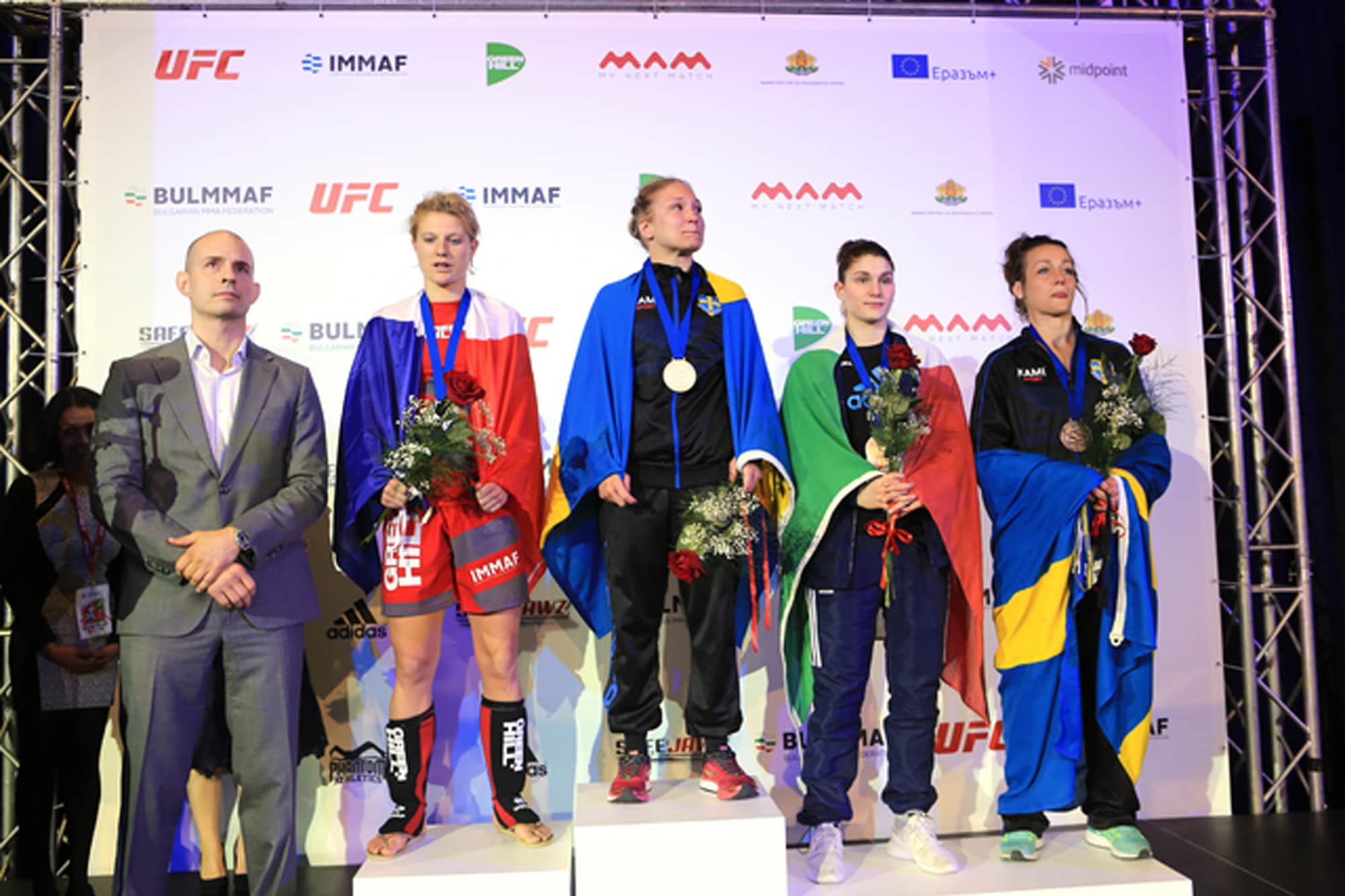By James Eakin
Since its creation in 2012, the IMMAF has worked tirelessly to ensure the proper regulation of the amateur MMA scene, with the end goal of reaching the Olympics. With multiple obstacles in their way, including the misleading stigma of brutish violence that surrounds the sport, as well as backlash from governing bodies such as the IOC and Global Association of International Sports Federations, the IMMAF is showing that amateur MMA will have a recognised spot in world sport in years to come.
One of the most common misconceptions surrounding MMA is that there are no rules. From the early days of the UFC, MMA was billed as a no holds barred event, but in actuality, modern MMA is safer than boxing. Furthermore, adherence with governing bodies and federations has meant that amateur MMA is a purist sport that revolves around the ideals of combat sport.
The creation of the Unified Amateur MMA Rules in 2014 has paved the way for proper regulation of the sport, ensuring that athlete safety is the priority at IMMAF events. Most notably, the banning of elbow strikes has upheld traditional MMA rules of allowing ground strikes whilst putting athlete safety first.
The work IMMAF has done for athletes from nations where MMA has previously not been well received cannot be understated. The legalisation of MMA in France in 2020 was a massive step forward for the sport, but prior to this moment it was the IMMAF that allowed French athletes to perform on a world stage. One of the best up and coming prospects of French MMA, Manon Fiorot, won medals in the IMMAF European Open and World Championships in 2017, before using her experience there to turn professional in 2018. The IMMAF has been and continues to be an invaluable source of support and opportunity for athletes facing such extraordinary circumstances.
Whilst MMA in Ireland was not illegal, it came very close to being made so in 2016 after the tragic death of Joao Carvalho. Following his fight against Charlie Ward under the Total Extreme Fighting promotion, Carvalho underwent emergency surgery at Beaumont Hospital, Dublin, before tragically passing away from his injuries. This sparked outrage in the Irish MMA community, with media outlets and politicians calling for the banning of the sport.
The IMMAF was able to show MMA in a different light, moving away from the unsanitary image that had been brought about after the death of Carvalho. The introduction of the All Ireland Team, which saw athletes from both the Republic of Ireland and Northern Ireland come together to compete was a moment of history for the sport and demonstrated a much more purist, family-friendly culture of amateur MMA that had been missing for a while. Not only that, but sponsorships from Irish superstar Conor McGregor have meant that the amateur scene in Ireland is now regarded in a far better light thanks to the work of the IMMAF in regulating the sport.
The IMMAF has shown that amateur MMA is more than a sport, it is a community, where athletes and coaches alike come to show their skill in respectful, regulated and sanctioned events. Whilst there is still a long way to go, the IMMAF is proving that amateur MMA has the potential to be a respected sport suitable for any crowd or event.

